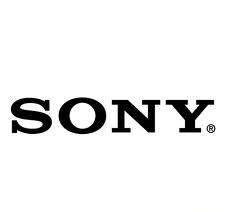 Citigroup reached a deal last year to split EMI Music Publishing between Sony and the Universal Music Group. Universal bid $1.9 billion for the company’s record labels and Sony pledged $2.2 billion for the rest of the company. Regulators on both continents are paying close attention to the companies’ growth and the amount of leverage they would gain over competitors and digital music services. Digital music services rely on licenses from labels and publishers, with music publishers controlling the copyrights for songwriting and labels controlling recordings.
Citigroup reached a deal last year to split EMI Music Publishing between Sony and the Universal Music Group. Universal bid $1.9 billion for the company’s record labels and Sony pledged $2.2 billion for the rest of the company. Regulators on both continents are paying close attention to the companies’ growth and the amount of leverage they would gain over competitors and digital music services. Digital music services rely on licenses from labels and publishers, with music publishers controlling the copyrights for songwriting and labels controlling recordings.
Sony’s proposed $2.2 billion takeover of EMI is one of the music industry’s biggest deals of the past decade. In the United States, the deal is under review by the Federal Trade Commission. If the deal is approved, Sony plans to lay off about 60% of EMI’s publishing staff within two years, according to sources not authorized to speak on the matter. This and other planned actions would save the company about $70 million annually. Sony would not comment on the information. A spokeswoman for Sony said in a statement, “Discussing details of any integration plan is premature while the regulatory approval processes are ongoing.”
There have been fears that the combined company might dominate the publishing industry. Concerns have been voiced by independent labels, consumer advocates and Impala, a European organization representing small music companies. Helen Smith, the executive director of Impala, said in an interview, “We believe these deals would give Sony and Universal excessive control over the markets for publishing and recordings, over collecting societies, how artists are signed, and how their careers are able to develop.”
The 74-page prospectus for a $1.1 billion bond offering that was prepared by UBS on Sony’s behalf states unequivocally that the combined publishing assets of EMI and Sony “will represent the world’s largest publishing catalog with a No. 1 market share on a combined basis.” It has been estimated that the combined publishing assets of Sony and EMI would account for 31% of the industry.
